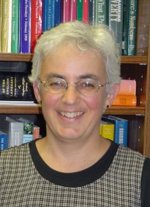Addressing the Challenges of Today's Labor Market
Katharine G. Abraham
Tuesday, 15 Apr 2014 at 8:00 pm – Great Hall, Memorial Union
Katharine G. Abraham was a member of the Council of Economic Advisers from 2011 to 2013. She has returned to the University of Maryland, where she is Professor of Economics and Survey Methodology and has been appointed as the first director of the Maryland Center for Economics and Policy. Abraham’s research has included work on employment and unemployment, labor market policy and the measurement of economic activity. She also served as Commissioner of the Bureau of Labor Statistics from 1993 to 2001. Abraham earned her BS in economics from Iowa State in 1976 and later a PhD in economics from Harvard University. National Affairs Series on Innovation and Women in STEM SeriesKatharine Abraham's prior appointments include the Brookings Institution and the Massachusetts Institute of Technology Sloan School of Management. She is a Fellow of the Society of Labor Economists and of the American Statistical Association, holds an honorary doctorate from Iowa State University, and is a past vice president of the American Economic Association.
Cosponsored By:
- Economics
- National Affairs
- Osher Lifelong Learning Institute - OLLI
- Committee on Lectures (funded by Student Government)
Stay for the entire event, including the brief question-and-answer session that follows the formal presentation. Most events run 75 minutes.
Sign-ins are after the event concludes. For lectures in the Memorial Union, go to the information desk in the Main Lounge. In other academic buildings, look for signage outside the auditorium.
Lecture Etiquette
- Stay for the entire lecture and the brief audience Q&A. If a student needs to leave early, he or she should sit near the back and exit discreetly.
- Do not bring food or uncovered drinks into the lecture.
- Check with Lectures staff before taking photographs or recording any portion of the event. There are often restrictions. Cell phones, tablets and laptops may be used to take notes or for class assignments.
- Keep questions or comments brief and concise to allow as many as possible.



